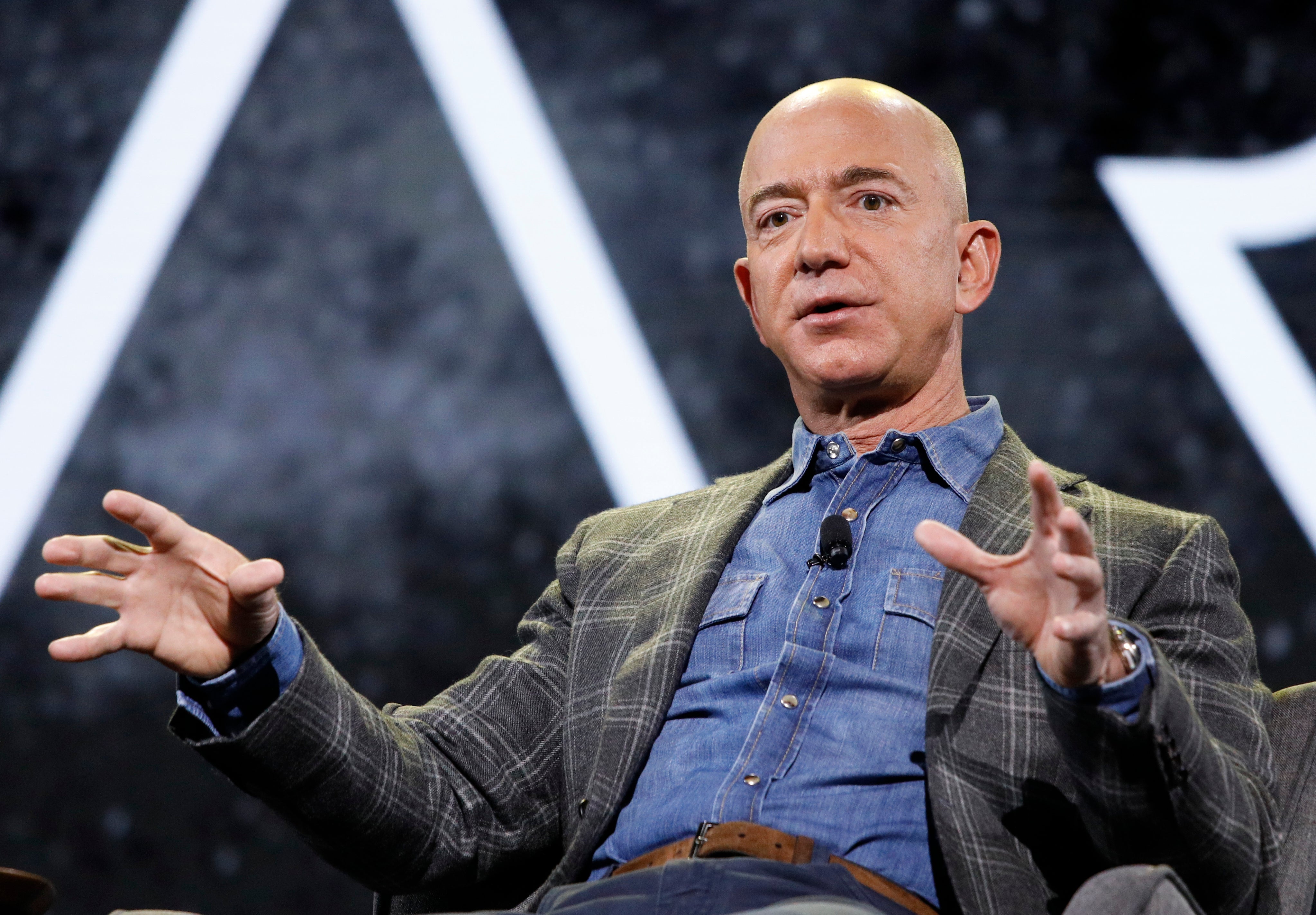Jeff Bezos, one of the world’s richest men, warns the rest of us about economic recession: ‘Batten down the hatches’
The CEO of JPMorgan Chase, Jamie Dimon, also predicts a recession within the next nine months

Your support helps us to tell the story
From reproductive rights to climate change to Big Tech, The Independent is on the ground when the story is developing. Whether it's investigating the financials of Elon Musk's pro-Trump PAC or producing our latest documentary, 'The A Word', which shines a light on the American women fighting for reproductive rights, we know how important it is to parse out the facts from the messaging.
At such a critical moment in US history, we need reporters on the ground. Your donation allows us to keep sending journalists to speak to both sides of the story.
The Independent is trusted by Americans across the entire political spectrum. And unlike many other quality news outlets, we choose not to lock Americans out of our reporting and analysis with paywalls. We believe quality journalism should be available to everyone, paid for by those who can afford it.
Your support makes all the difference.Jeff Bezos, the founder of Amazon and one of the world’s richest men, has dire predictions for the US economy in the near future.
On Tuesday Mr Bezos retweeted a CNBC clip in which Goldman Sachs CEO David Solomon advised business owners to begin preparations for volatile markets in the coming months.
"In the distribution of outcomes, there’s a good chance we could have a recession in the United States," Mr Solomon says in the clip.
Mr Bezos shared his own thoughts alongside the clip, agreeing with the CEO’s read on the nation’s economic future.
"Yep, the probabilities in this economy tell you to batten down the hatches," he wrote in his retweet.
However, it’s not just wealthy CEOs cautioning that a recession may be on the horizon; some analysts predict that the Federal Reserve’s attempts to curb inflation by hiking interest rates will discourage consumer borrowing and spending. In March interest rates were near zero; the Fed raised the rates to between 3 and 3.5 per cent, and could raise rates to 5 per cent by next year.
Amazon’s current CEO, Andy Jassy, has been making moves in the last year that indicate he is also wary of a looming recession. The company has put a freeze on new hires, reduced its spending, and worked to cut costs where possible in preparation for a downturn.
CNBC spoke with Steve Hanke, a professor of applied economic at Johns Hopkins University, who said he believed the US was headed for a "whopper" of a recession in 2023.
However, there are analysts who don’t share that view.
Jeffrey Roach, the chief economist for LPL Financial, was cited in a Forbes piece saying he did not believe the current economic slowdown would be "significant" enough to trigger a recession.
“A slowdown has to be significant, broad and sustained before it qualifies as a recession,” he said. “Currently, the economy is downshifting to a much slower growth path, but the decline in economic activity is not ‘significant’ in our view.”
Peter Essele, the head of portfolio management for Commonwealth Financial network, said that above-average job growth reports should provide some optimism for investors.
“It’s difficult to rectify how some are claiming the economy is in recession when job growth remains well above long-term averages and wage growth is the strongest in decades,” he said.
The US is not alone when it comes to potential economic hardship — disruptions to the still-recovering post-pandemic supply chain, significant private and public debt holdings, and commodity price spikes caused by Russia’s invasion of Ukraine have caused some analysts and researchers to warn that a global recession may be on the horizon.
JPMorgan Chase CEO Jamie Dimon, who also predicts a US recession within the next nine months, explained in the company’s 2022 second-quarter earning statement why he was concerned for the health of the global economy.
"The US economy continues to grow and both the job market and consumer spending, and their ability to spend, remain healthy," he said.
"But geopolitical tension, high inflation, waning consumer confidence, the uncertainty about how high rates have to go and the never-before-seen quantitative tightening and their effects on global liquidity, combined with the war in Ukraine and its harmful effect on global energy and food prices are very likely to have negative consequences on the global economy sometime down the road."
Join our commenting forum
Join thought-provoking conversations, follow other Independent readers and see their replies
Comments